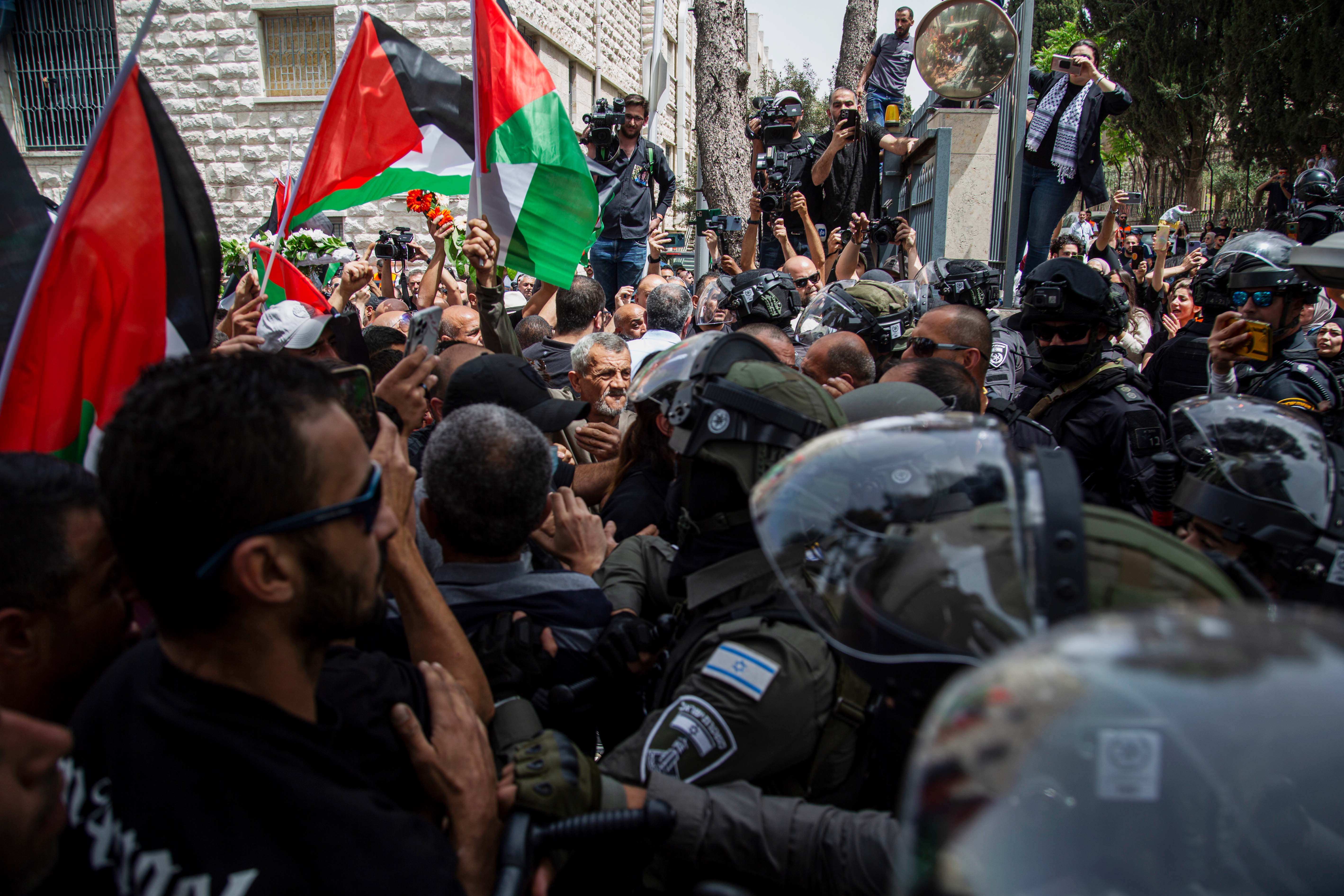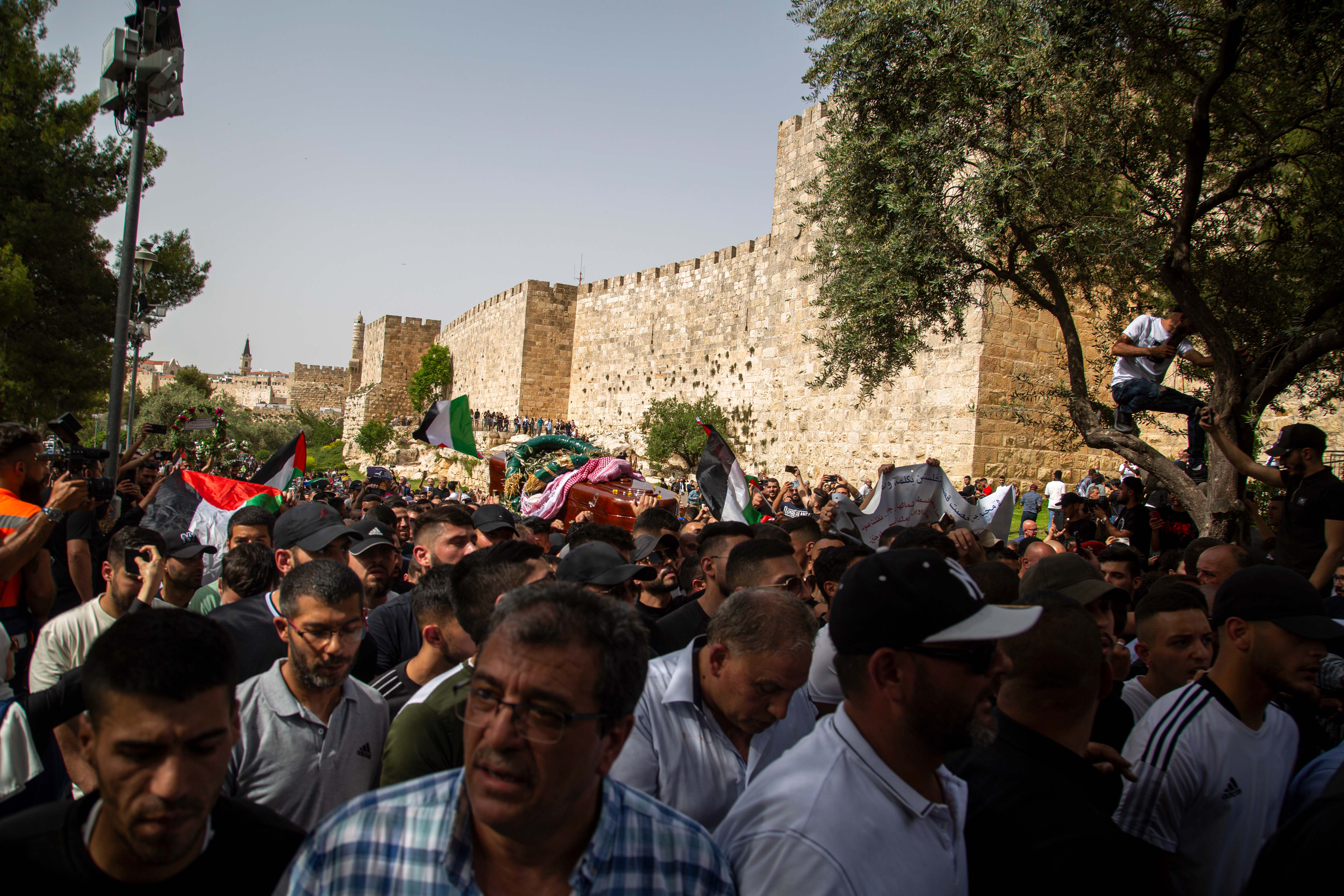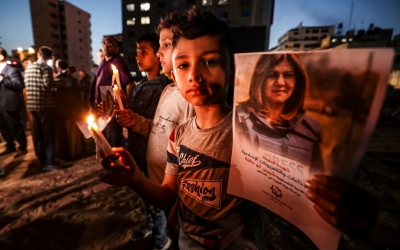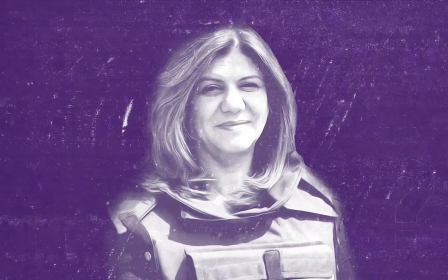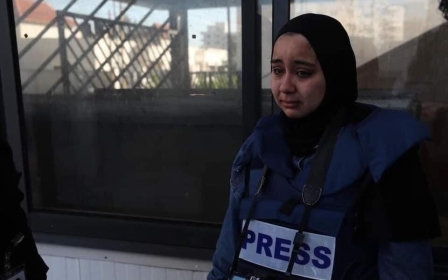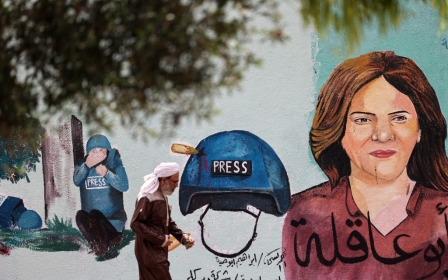Violence then peace: Shireen Abu Akleh laid to rest in Jerusalem
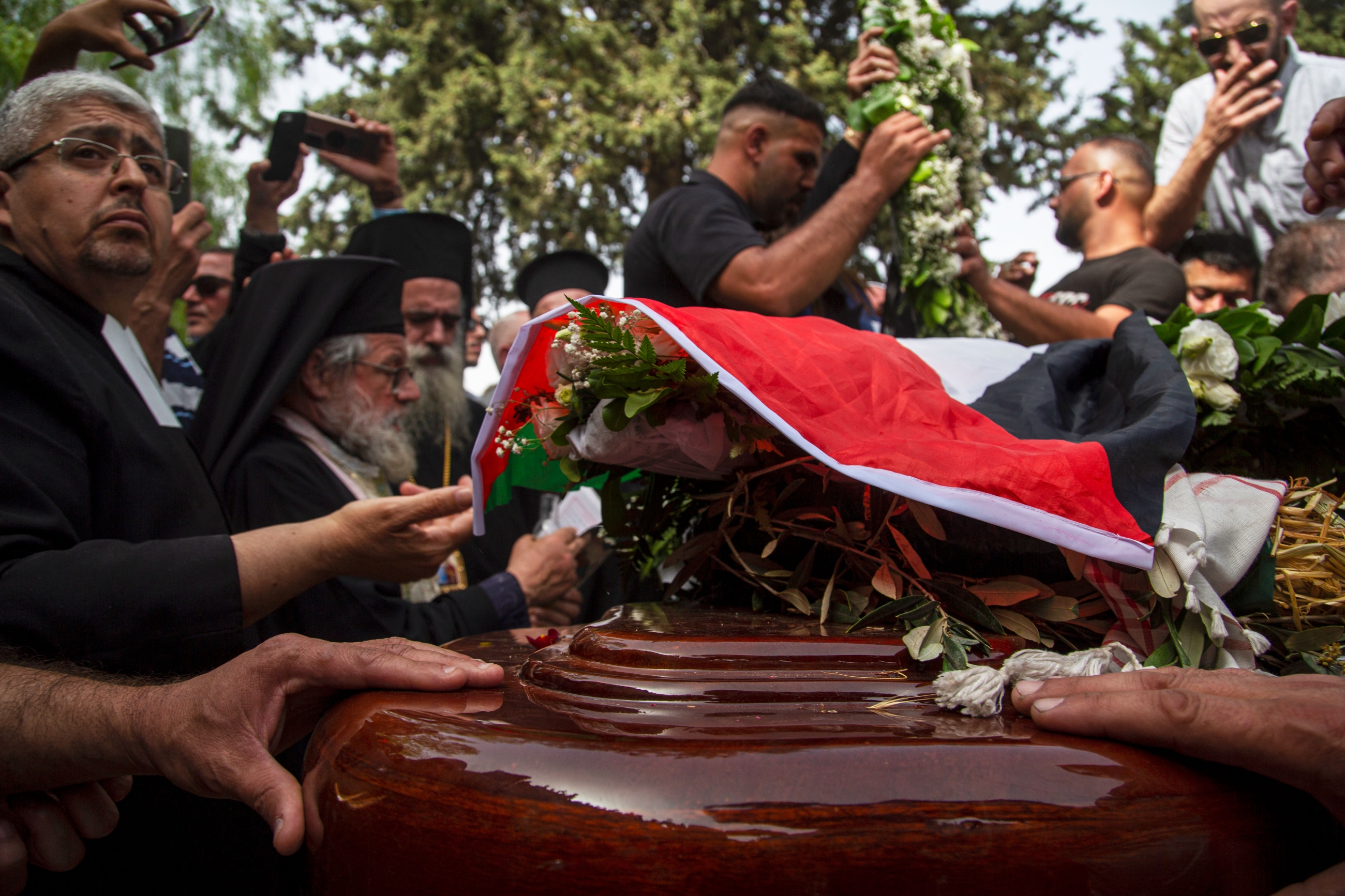
People piled into the yard outside the Saint Joseph French Hospital in East Jerusalem's Sheikh Jarrah neighbourhood on Friday morning, waiting for the body of slain Palestinian journalist Shireen Abu Akleh to leave the morgue.
Palestinian flags fluttered, despite a last-minute decision from Israeli authorities to ban and confiscate them. Ten or so rows of heavily armed riot police stood at the gates of the hospital.
In the days leading up to the funeral in her hometown of Jerusalem, the body of Abu Akleh, shot by an Israeli gunman on Wednesday while she reported on an Israeli military raid, was carried through Jenin, Nablus and Ramallah.
In every West Bank city the cortege visited, residents rushed to join the procession and help carry the casket to the next stop.
After Muslims finished prayers outside the hospital on Friday, word spread that the police had spoken to Abu Akleh’s family, who are Christians. They didn't want her casket to be carried aloft in a procession, an effort to prevent a mass march along the roughly 2.7km route to a Roman Catholic church in the Old City. The police wanted her body to be transported in a car.
Mourners resisted, holding Abu Akleh's casket aloft as they attempted to leave the hospital yard.
Israeli police responded with immediate violence. An Al Jazeera stream captured officers beating mourners with truncheons and firing stun grenades into the crowd.
Another video captured a bald man in a grey t-shirt being kicked in the torso as he lay on the ground. Stumbling away from the oncoming security forces, towards a group of Palestinians falling over each other to escape the beating, he was kicked again and whacked in the side with a baton.
The man kept his eyes on Abu Akleh's casket, though, which was teetering as the men underneath it struggled to hold firm while Israeli forces continued to strike them.
Trying to evade the blows, the man, with a terrified look on his face, sprang towards the coffin as it slipped towards the ground and managed to catch the falling end.
After the sudden overwhelming violence, Abu Akleh's family agreed for her casket to be placed in a vehicle. Police prevented mourners coming near the vehicle, beating back those who approached.
As the car left, security forces shut the gate of the hospital, trapping most of the mourners inside the yard of the building. Only once the car had reached the church were they finally allowed out of the compound.
A video released by the Israeli authorities showed police officers snatching Palestinian flags off Abu Akleh's hearse as it drove through occupied East Jerusalem.
The cathedral and the cemetery
When her casket entered the ornately decorated Cathedral of the Annunciation of the Virgin, there was finally peace.
The building was packed with Palestinians of all faiths, among them diplomatic delegations, Shireen Abu Akleh's former Al Jazeera colleagues - including their head of news in his Qatari thobe - and her family.
In the Christian quarter outside the church, more and more Palestinian mourners gathered.
Among them lurked an unprecedented number of Israeli police officers, in uniform and civilian clothing. Several times, Middle East Eye saw people who were carrying the Palestinian flag or chanting Palestinian slogans - which were both outlawed for the funeral by authorities - being suddenly set upon, beaten and dragged away.
After the final prayers in the church, Abu Akleh was brought outside once again. Witnesses described a sea of people all the way to the Mount Zion Cemetery hundreds of metres away, which was to be Abu Akleh's final resting place.
It looked as if the casket was moving above the march, not the march moving the casket.
Many young people, desperate to get a glimpse of Abu Akleh's coffin before she was interred, climbed over the walls of the cemetery, as Israeli restrictions on Palestinians entering and leaving the Old City meant they were lagging behind.
A cross of flowers, carried in front of the coffin by Muslim and Christian crowds, also finally got to the graveyard.
Then, in an extraordinary moment, representatives from the Christian denominations in Jerusalem rang church bells in tandem for the first time in the ancient city's history.
They rang for more than 30 minutes, mingling with the Islamic religious chant of "God is Great".
Draped - despite the Israeli restrictions - in a Palestinian flag, the coffin of Abu Akleh was finally placed into the ground in a plot alongside her parents.
Long after the burial was finished, mourners continued to come forward, putting down flowers and saying prayers.
Unity
The death of the veteran journalist has united Palestinians like few other events in recent history.
Israeli restrictions make it extremely difficult for Palestinians to gather in Jerusalem in such large numbers, but this was the biggest Palestinian funeral in decades.
Many locals felt it was as big as - if not bigger than - the famous funeral of Palestinian leader Faisal Husseini, who was buried in Jerusalem in 2001; and bigger than Yasser Arafat's 2004 burial in Ramallah.
Palestinians from Jerusalem and the cities in the 48 community came to the funeral, but no one from the West Bank or Gaza was allowed to attend.
The different faiths rarely come together as they did on Friday.
After taking part in Islamic Friday prayers at the hospital, Palestinian Muslims and Christians joined the procession and prayed side-by-side in the Roman Catholic cathedral for the beloved journalist.
"A nation united, raise your hands and raise your voices," Palestinians had chanted earlier. "Muslims and Christians, raise your voice in union."
Middle East Eye propose une couverture et une analyse indépendantes et incomparables du Moyen-Orient, de l’Afrique du Nord et d’autres régions du monde. Pour en savoir plus sur la reprise de ce contenu et les frais qui s’appliquent, veuillez remplir ce formulaire [en anglais]. Pour en savoir plus sur MEE, cliquez ici [en anglais].


